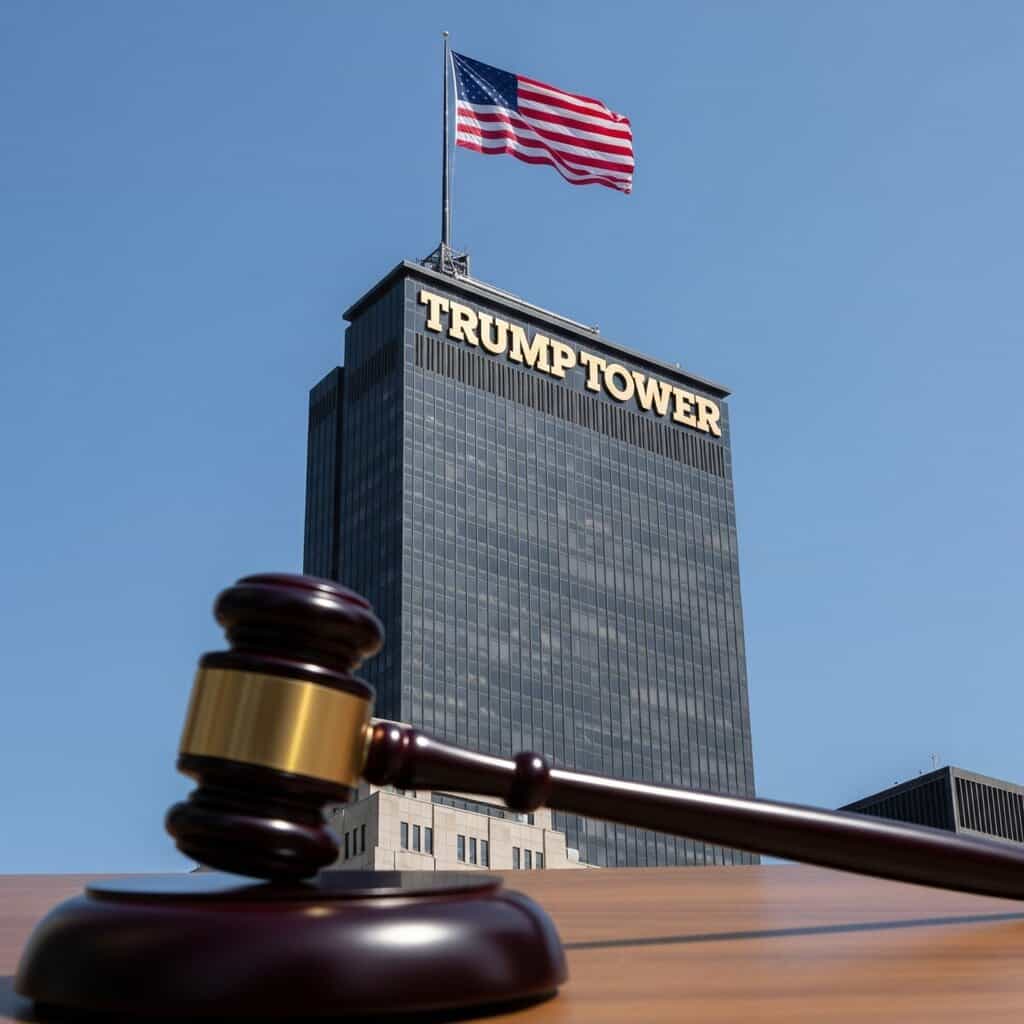Introduction
Remember when former President Donald Trump slapped hefty tariffs on imported goods, promising to protect American industries? Well, several US states are now fighting back in court, arguing that these Trump tariffs lawsuit are doing more harm than good. The Trump tariffs lawsuit has become a significant legal battleground. But what’s really going on here? Let’s break it down.
What Are Tariffs and Why Did Trump Impose Them?
Tariffs are taxes on imported goods, meant to make foreign products more expensive and boost domestic production. Trump claimed they’d revive American manufacturing and punish unfair trade practices, especially from China. But critics say they backfired, hurting businesses and consumers instead.
The ongoing Trump tariffs lawsuit highlights deep divisions on trade policy across the nation.
Which States Are Leading the Legal Challenge?
As the Trump tariffs lawsuit unfolds, the impact on various sectors continues to grow, revealing the widespread discontent among states.
States like California, New York, and Texas—yes, even some Republican-led states—are pushing back. They argue the tariffs overstep presidential authority and hurt their economies. From farmers to factory owners, the backlash is real.
This ongoing Trump tariffs lawsuit challenges the legality of these measures, raising questions about executive power.
The Legal Basis for the Challenge
Consequently, the Trump tariffs lawsuit is pushing states to reconsider their economic strategies amidst rising costs.
The Constitution gives Congress, not the president, the power to regulate trade. States claim Trump abused his authority under the Trade Expansion Act of 1962, which allows tariffs only for national security reasons—not broad economic policy.
Economic Impact of Trump’s Tariffs
Higher tariffs mean higher costs. Businesses paying more for steel and aluminum pass those costs to consumers. Some companies cut jobs or moved operations overseas to dodge expenses. The promised “protection” came with a hefty price tag.
How Tariffs Have Affected Specific Industries
Agriculture
Soybean farmers lost billions when China retaliated with its own tariffs. Many small farms barely survived.
Manufacturing
Auto and machinery makers faced soaring material costs, making US products less competitive globally.
Retail
This latest Trump tariffs lawsuit may set a precedent for how future trade disputes are handled.
Ever noticed higher prices on electronics or clothing? Thank tariffs for that.
The Trump tariffs lawsuit highlights critical issues that may affect future economic policies.
Political Reactions to the Tariffs
Should the Trump tariffs lawsuit succeed, it could significantly alter the landscape of US trade policy.
Democrats largely opposed the tariffs, while some Republicans backed them—until their own states suffered. Now, bipartisan frustration is growing.
Previous Legal Challenges to Trump’s Trade Policies
Courts have mostly sided with the president on trade, but this case is different. States are arguing economic harm, not just procedural overreach.
The implications of the Trump tariffs lawsuit may resonate far beyond the courtroom, affecting international relations.
Potential Outcomes of the Court Challenge
If states win, tariffs could be rolled back. If they lose? More economic strain—and possibly a reevaluation of presidential trade powers.
How Other Countries Have Responded to US Tariffs
Ultimately, the outcome of the Trump tariffs lawsuit could redefine the boundaries of presidential authority over trade.
China, the EU, and Canada hit back with their own tariffs, hurting US exports. Trade wars, it turns out, don’t have winners.
What This Means for US Trade Policy
Future presidents might think twice before imposing sweeping tariffs. Or will they? The case could redefine trade authority for years.
Public Opinion on Tariffs and Trade Wars
Polls show most Americans dislike tariffs, fearing higher costs and job losses. But some still believe in “America First” protectionism.
Expert Opinions on the Legal Battle
Economists warn tariffs hurt growth, while legal experts say the case could go either way—depending on how courts interpret presidential power.
What Businesses Can Do in the Meantime
Diversify suppliers, lobby for exemptions, or brace for more uncertainty. It’s a tough road ahead.
Conclusion
Trump’s tariffs were meant to strengthen the US economy, but many argue they did the opposite. As the Trump tariffs lawsuit progresses, states are taking the fight to court—and the outcome could reshape trade policy for good.
FAQs
- Which states are suing over Trump’s tariffs?
- California, New York, Texas, and others.
- What legal arguments are being used against the tariffs?
- They exceed presidential authority and harm state economies.
- How have tariffs impacted US farmers?
- China’s retaliatory tariffs cost billions in lost exports.
- Could this lawsuit overturn Trump’s tariffs?
- Possibly, if courts rule they were unlawfully imposed.
- What are the long-term effects of these trade policies?
- Strained global relations, higher consumer prices, and uncertain recovery.


We want to hear your what you have to say